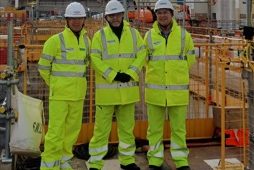Permanent placements rise at faster pace in July

Permanent placements across the North of England rose at a faster rate in July, the latest KPMG and REC UK Report on Jobs, claims.
The report, which is compiled by IHS Markit from responses to questionnaires sent to around 100 recruitment and employment consultancies in the North of England, signalled a sharp rise in permanent staff appointments at the start of the third quarter, compared with a fall at the national level.
This contrasted with another fall in temp billings.
Meanwhile, temporary staff availability rose for the first time September 2013, with some recruiters linking this to redundancies and reduced use of short-term staff.
The rise in permanent placements extends the current sequence of growth to five months.
The rate of expansion ticked up from June and was sharp overall, but remained softer than May’s recent high.
When explaining the latest increase, some panellists mentioned rising business requirements at their clients.
However, at the national level, permanent staff appointments fell for the fifth month in a row.
Although the pace of decline slowed for the second month running, three of the four monitored English regions recorded reductions.
July data pointed to a third successive monthly decline in billings received from the employment of temporary staff in the North of England.
The pace of contraction accelerated from June and was modest overall.
Anecdotal evidence suggested that the latest reduction was driven by a fall in demand for short-term workers.
Meanwhile, temporary staff billings across the UK continued to rise at the start of the third quarter, extending the current run of growth that began in May 2013.
However, the rate of expansion eased to the softest over this period and was only slight overall.
Demand for both permanent and temporary staff continued to rise in the North of England during July.
Permanent job vacancies rose sharply, with the rate of increase accelerating from June.
Moreover, growth in the region outstripped the UK average for the fifth month in a row.
Demand for temporary workers in the North of England also rose at a faster pace than the national average, although the rate of growth in the region was broadly unchanged from June.
Permanent staff availability continued to fall in the North of England during July, stretching the current run of decline to six-and-a-half years.
However, the pace of contraction eased to the softest for 10 months. Some recruiters associated the ongoing reduction to Brexit uncertainty.
Across the UK, the supply of permanent workers fell at the slowest rate for two-and-a-half years. All four monitored English regions recorded declines in permanent candidate availability, but only the Midlands reported a faster reduction than in June.
Recruiters in the North of England saw temporary worker availability increase during July.
Although only marginal overall, the rise was the first recorded since September 2013.
Anecodotal evidence pointed to increased amounts of redundant workers and lower usage of temporary workers.
At the national level, temporary labour supply fell again in July. The result stretched the current run of reduction to just over six years, but the rate of decrease eased to the softest in that period.
At the regional level, all three of the other covered English regions recorded a fall in temporary staff availability.
As has been the case in each month since March 2012, recruitment firms in the North of England reported an increase in permanent starting salaries during July.
Moreover, the rate of inflation accelerated to the fastest for just over a year and was sharp overall.
Starting salaries for permanent workers also rose across the UK as a whole.
Remuneration paid to temporary workers in the North of England rose for the 83rd month in succession during July.
The pace of growth quickened for the second month in a row, and was faster than the UK average for the first time since April.
According to some panellists, inflationary pressures were driven by greater competition for skilled workers.
Temporary pay across the UK also rose in July. The pace of growth eased to the slowest in four months but remained sharp overall.
Commenting on the latest survey results, Nicola Quayle, office senior partner at KPMG in Manchester, said: “The North’s jobs market is largely performing well and recruitment activity over the past month points to an underlying resilience in the regional economy.
“The healthy and growing rate of permanent appointments, coupled with a sharp rise in new vacancies, suggests that employers are determined to press on with their long term growth plans and remain uncowed by uncertainty.”
She added: “Of course, time will tell whether our business community can keep up this momentum or more bearish sentiment elsewhere, and some of the nervousness over temporary roles, puts the brakes on local hires and expansion.”







